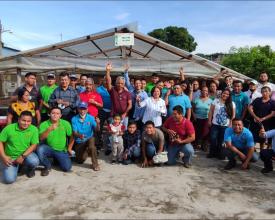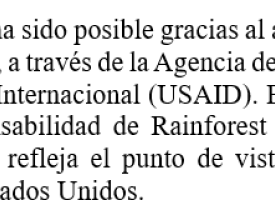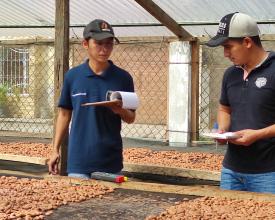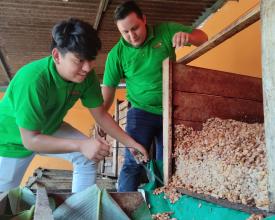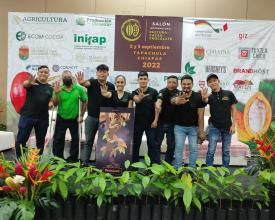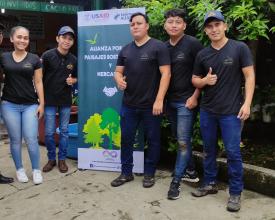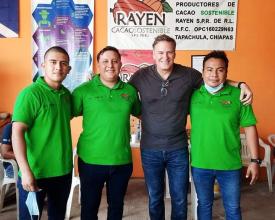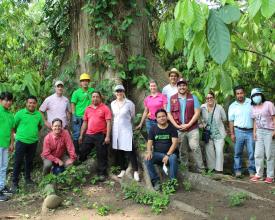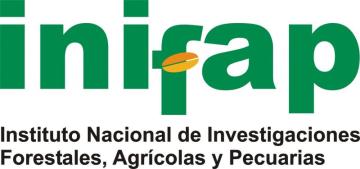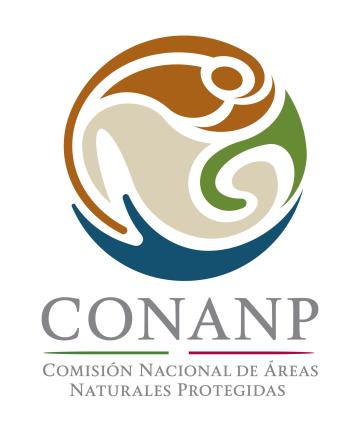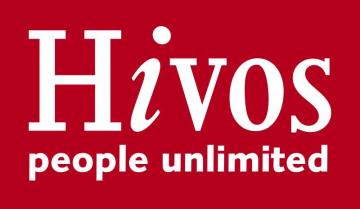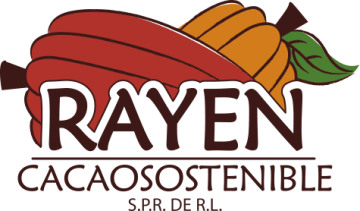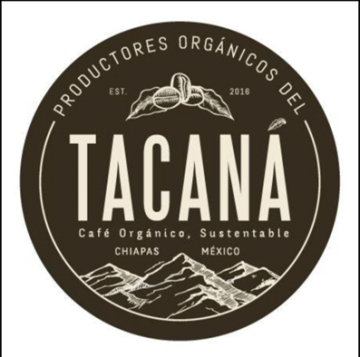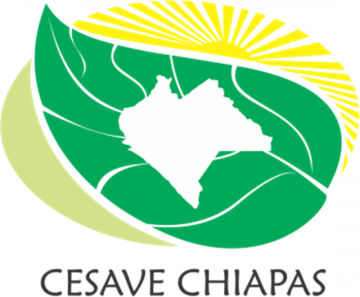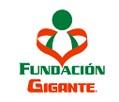
Strengthening of coffee and cocoa producer organizations through the inclusion of youths
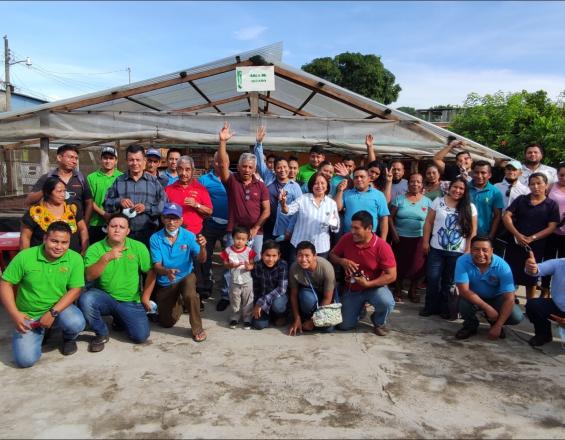
In Chiapas, young people in coffee- and cacao-growing communities live in situations of risk and disadvantage that hinder their integral development and limit their opportunities for personal, educational and economic growth. In an effort to improve this situation, Rainforest Alliance Mexico, in 2021, under the project Alliance for Sustainable Landscapes and Markets (APSyM), funded by the United States Agency for International Development (USAID), designed a youth training strategy. For one year, with the objective of training, forming and consolidating technical bodies, called Local Managers (GL), two diploma courses were developed with training on agroforestry systems, leadership, harvesting and post-harvesting. This allowed the professional linkage of young people with the Sustainable Cocoa Producers Organization RAYEN and Organic Producers of Tacaná (POT), who produce and market fine aroma cocoa and arabica coffee, respectively, under a sustainable approach.
Context
Challenges addressed
In the state of Chiapas, 80.7% of young people have incomes below the welfare line and 79.8% work under informal employment conditions. The challenge was to make the cocoa/coffee value chains attractive for the personal, social and economic development of the young population, and to promote greater inclusion of young people in production organizations. For this reason, the APSyM and Sustainable Agriculture in Coffee and Cocoa projects, funded by USAID and Fundación Gigante, respectively, strengthened RAYEN and POT in their organizational, production and business processes in 2019-2023. Even with the process of training GL concluded, the challenge was to find employment opportunities for these young people. In Rainforest Alliance Mexico, through the Sustainable Agriculture in Coffee and Cocoa project, we provide them with opportunities to strengthen them and avoid migration due to lack of opportunities to improve their living conditions.
Location
Process
Summary of the process
The producer organizations RAYEN and POT (Block 1) committed to improving their organizational, production, commercial and business processes. Although each organization has its own needs, both raised the urgency of having a technical team that would give continuity to the work they carry out under the sustainable production scheme and that would be made up mainly of young men and women, sons and daughters of producers. This commitment and these needs were addressed by Rainforest Alliance Mexico, through the projects it implements in the Soconusco region. With the process of training local managers, complementary and replicable activities were identified between projects (block 2), which allowed for more efficient work plans with greater impact. On the other hand, the formalization of strategic alliances (block 3) with local actors such as CONANP, INIFAP and CESAVE, with years of experience and previous work with RAYEN and POT, allowed the efficient implementation of the projects, and also ensured that the collaboration network supports, accompanies, replicates and amplifies the impacts in the territory.
Building Blocks
Cocoa and coffee producers' organization
The organizations Productores de Cacao Sostenible RAYEN and Productores Orgánicos del Tacaná (POT) were created in 2016, since then they are dedicated to the production and commercialization of fine aroma cacao and arabica coffee, respectively. Both are located in the Soconusco Region, in the state of Chiapas. Being constituted was important to promote and support young people in their training process as Local Managers (GL), as they created spaces for participation in which the leaders of both organizations contributed their experience in the training sessions. Since 2018, Rainforest Alliance Mexico, through the Sustainable Cocoa and Coffee Production ( Fundación Gigante and Hivos) and APSyM (USAID) projects, has provided them with support to strengthen their productive, organizational and marketing processes, thereby increasing their presence in the region and their visibility in national and international markets. This awakened the interest of some young people to begin their training process as LGs, who, in addition to committing themselves to their training, followed up on the good agricultural practices promoted by the organizations. In this way, the LGs had this space to provide technical assistance to people linked to RAYEN and POT.
Enabling factors
-
Within the organizations, leaders were identified who motivated, supported, favored and became positively involved in the education and training of young people. This encouraged the participation of young people throughout the training process.
-
Without neglecting their obligations, the young people committed themselves to the different stages of training.
-
Facilities, especially in terms of mobility, were provided to young people to participate in the different stages of training.
Lesson learned
- The RAYEN youth live in an environment closer to the city, which logistically facilitated their participation in the trainings. The POT youth live in communities located on the Tacaná Volcano, which made it more difficult for them to participate in most of the sessions. Therefore, it is necessary to take into account the social conditions of the participants.
- The appropriation of the training process allowed the LGs to find an opportunity to generate economic income. In the case of RAYEN's LGs, their training enabled them to provide paid technical assistance and undertake the PENTACAO pilot project for the commercialization of chocolate bars. The RAYEN board provided the LGs with the basic equipment necessary for cocoa processing.
- The cooperatives and their young people must keep in mind that the training process is a long one. The desertion of participants is always latent. Each story is different, and in the case of POT, shortly after completing their training, some young people decided to emigrate from their communities in search of other opportunities.
Projects, programs or initiatives that strengthen producers' cooperatives and respond to the interests of young people
Since 2018, the Rainforest Alliance Mexico has been implementing the following projects in the Soconusco region of the state of Chiapas. Sustainable Agriculture of Coffee and Cocoa, funded by Hivos (2018-2020) and Fundación Gigante (2018-2024) and APSyM, funded by USAID (2018-2023), with which organizational processes were improved (including leadership), production, harvest/post-harvest, commercial and business (improvement of marketing prices), communication and positioning at the local, regional and national level of the producer organizations RAYEN and POT, which together involve more than 170 people who produce coffee and cocoa under agroforestry systems. All of the above has been the basis for making the organizations more attractive for young people to join the production chains and seek opportunities for training, sharing experiences and generating self-employment opportunities for themselves. To support the interest of young people, the Rainforest Alliance Mexico designed work plans that included complementary activities between projects, which ensured the follow-up of both the strengthening of the organizations and the processes of education, training and integration of these young people into the organizations.
Enabling factors
-
Rainforest Alliance Mexico projects implemented in the Soconusco region have complementary activities, such as experience exchanges, that can be replicated or followed up by any of the projects.
-
A coordinator in the region is familiar with the projects' work plans; this facilitates the identification of work groups and/or specific activities that make the work of each project more efficient, generate greater impact and respond to the interests of young people.
Lesson learned
-
It is vitally important to maintain a person in the region of implementation and to encourage constant communication with the producers, through field visits, phone calls or virtual meetings, to follow up on the development of the processes of strengthening the organizations. Without this constant communication, it is likely that the strategy of training local managers (LG) would not have emerged.
-
The LG formation process is very long; it can take up to two years to consolidate the group. It should be sought that this training process should start as soon as the lead or umbrella project starts.
-
The flexibility in the work plans and activities of the different projects or initiatives allowed the training process to be addressed from different angles and with different approaches.
-
The level of desertion during the training program was 50%. In order to reduce this percentage during and after the training process of the LGs, it is key to develop together with the organizations a strategy to avoid desertion.
Strategic alliances for better implementation
To improve the organizational, productive, commercial and business conditions of POT and RAYEN, and thus be attractive to young people, in addition to the two projects implemented in Soconusco, Rainforest Alliance Mexico established alliances with local institutions, organizations and working groups, which formalized with collaboration agreements, annual work plans and under the modality of providing specialized services. The producer organizations POT and RAYEN have been strengthened through these alliances, making their work more attractive to young people. Since that year, CONANP has supported POTs with annual subsidy programs to improve sustainable production processes; CESAVE has implemented annual management plans to combat moniliasis and black spot, cocoa diseases that reduce production. With the strengthening of POT and RAYEN, young people showed interest in the coffee and cacao production chains, and in 2021 Rainforest Alliance Mexico began the process of training local managers. This was supported by POT and RAYEN, and together with CONANP and CESAVE promoted the participation of young people in the one-year training process, which INIFAP developed as the consulting agency responsible for the training.
Enabling factors
-
Since 2016, the strategic allies have strengthened POT and RAYEN and incorporated into their work plans activities to give continuity to the processes promoted by Rainforest Alliance Mexico.
-
The allied institutions established work plans with producer organizations and gave continuity to the organizational, productive, commercial and business strengthening developed by RA Mexico.
-
The strategic allies were permanent promoters of the inclusion of young people in the processes of training local managers.
Lesson learned
-
Producer organizations (POT and RAYEN) are attractive to young people because they have strengthened their productive, organizational, commercial and entrepreneurial processes; RAYEN and POT, together with CONANP and CESAVE, initiated and have maintained this process since 2016.
-
The close collaboration of the producer organizations with the institutions (INIFAP, CONANP and CESAVE) and the support they provide to the young people during and after the process generated and promoted by Rainforest Alliance Mexico, ensures the continuity of the process of training local managers.
-
With the formalization of partnerships in the territory and the development of annual work plans, it was guaranteed that during the year of the training process, there would be at least one person responsible for complying with the plans.
Impacts
In 2021, the APSyM project designed a youth training strategy. Two diploma courses on agroforestry systems, leadership, harvesting and post-harvesting of coffee and cocoa were developed, consolidating a group of 11 young technicians called GL, who have trained 116 people from RAYEN and POT in sustainable production of coffee and cocoa.
As a result, Good Agricultural Practices (GAP) have been implemented in approximately 200 hectares of cultivated land. POT's local LGs helped POT obtain organic certification (2021 and 2022) and Rainforest Alliance Mexico certification (2021). For POT, including young people ensures the continued adoption of GAPs, which favor the conservation of at least 18 animal species under risk categories.
RAYEN's LGs identified three axes of self-employment and income generation: 1) Transformation: creation of PENTACAO chocolate bars; 2) Technical advice: formalization of two GAP training processes for cocoa production; 3) Agrotourism: creation of a pilot tourist route in RAYEN's agroforestry plots.
Through these efforts, the APSyM project generated new economic opportunities for young people in vulnerable areas in Mexico.
Beneficiaries
The organization of Sustainable Cocoa Producers RAYEN and Organic Producers of Tacaná (POT), which together group 205 producers, benefit from the inclusion of 4 young women and 7 young men trained as GL.
Sustainable Development Goals
Story
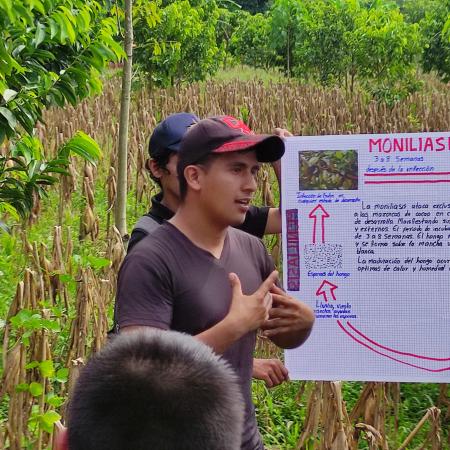
Cacao Sostenible RAYEN is an organization of producers formed since 2016 and during these years has focused on cocoa production under agroforestry systems. Like any organization, it has great challenges at the production, organizational, commercial and business levels. RAYEN identified that young people are not interested in the cocoa production chain. In this context, in 2021, Rainforest Alliance Mexico and INIFAP, under the APSyM project, funded by USAID, began the process of training young people under the title of GL. During one year, two diploma courses were developed with training on agroforestry systems, leadership, harvesting and post-harvesting of coffee and cocoa. Here begins the story of Jorge Antonio García, who at the age of 22 is trained as a GL. His family produces cocoa and his only responsibility on the farm is to harvest. Jorge lives in the Raymundo Enriquez ejido, municipality of Tapachula, and is dependent on the work his father offers him in the family store. Jorge successfully completes the diploma courses, learns to do cultural work, and is interested in sharing with other people, including the older farmers in his community. In 2021, under the Sustainable Agriculture of Cocoa and Coffee project, funded by Fundación Gigante, Rainforest Alliance Mexico invites him and his fellow GLs to two exchanges of experiences; together with leaders from other communities, he shares what he has learned. People respect his voice, the voice of a technician ("I am the son of a farmer," he says). With all he has learned, Jorge convinces his father to implement good practices in a section of the plot. The following year, production in that section, in Jorge's words, increased by 100%. As a result of his training as a GL, together with his colleagues, he started consulting services, collaborating with the Sustainable Production of Cocoa and Coffee project and training 79 cocoa producers in good agricultural practices, as well as developing a catalog of cocoa varieties from Soconusco. Likewise, as a form of self-employment, they started the pilot of the PENTACAO brand, a project led by the GLs, in which they promote the concept "from the land to the bar" and transform the cocoa produced in RAYEN's plots into excellent quality chocolate bars. Jorge belongs to a group of young people, the new leaders in cocoa production and transformation: RAYEN's Local Managers.

